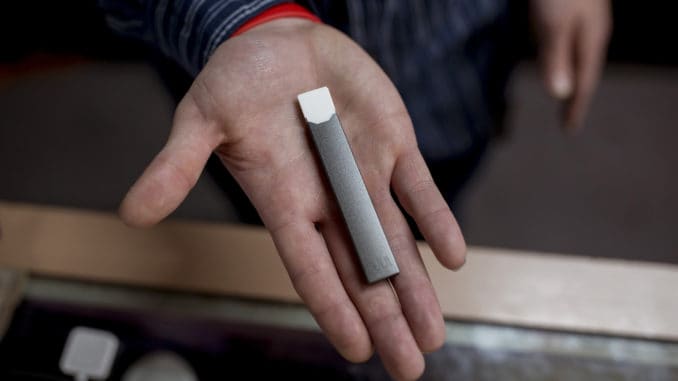
The Culver City Council Meeting on Tuesday, May 28th was the site of a controversial discussion about the regulation of electronic cigarettes (commonly referred to as e-cigarettes, e-cigs, or vapes) and flavored tobacco products in Culver City. While there was no concrete motion on the table, the agenda item prompted a heated discussion involving students, parents, medical professionals, and vendors of the products in question.
The first public comments came from students at Culver City High School, all calling for anti-vaping measures to be taken. The students recounted stories of classmates vaping in school bathrooms, hallways, and even within classrooms. Junior Maya August, Senior Class President Michelle Davies, and Senior Leslie Nava called for the ban or restriction of all nicotine product sales, expressing concern for fellow classmates and overall health.
Nava commented on the accessibility of tobacco and nicotine products, explaining, “It’s so easy for students at the high school to have access to products like Suorins, Juules, and others and it’s because they either don’t get carded at stores or they get smart and order online.”
High Schooler Rikesh Patel took a different approach, advocating for regulation and rebranding of flavor names, on the basis that flavor names such as “tutti frutti” and “cotton candy” appealing to youth target a younger audience. Additionally, Patel claimed that educating students on the adverse effects of vaping would be more effective than other proposed ideas, such as smoke detectors.
Adult Culver City residents cited research and statistics about the growing epidemic of vaping and the problems it poses. Alice Kuo, M.D. made the argument that the use of e-cigarettes is a gateway drug to others like marijuana, which can be ingested with the same technology. Kuo cited a study from USC that looked at communities with stricter regulations; Manhattan Beach and Hermosa Beach.
Multiple community members, including student Michelle Davies also cited concern regarding the disproportionate impact of flavored tobacco and e-cigarette usage on minority communities.
Proponents of the continued sale of flavored tobacco products and electronic cigarettes took a stand at the meeting as well. Morris Povloar, the owner of a local 76 gas station that sells the products in question, contended that limiting or banning sales would simply drive away customers and thus revenue, claiming that customers who want both gas and flavored tobacco products will seek a place to buy both. Thus, Povloar reasons, there is no use in banning the sale of these products without concurrent bans in neighboring cities.
Jaime Rojas, member of the National Association of Tobacco Outlets, called for a task force to find a unique solution to the problem in Culver City, as well as an economic impact report. Rojas also cited alcohol and marijuana usage as a more pertinent problem, and one to be addressed before tobacco and nicotine. Other arguments in opposition to any kind of ban or regulation include the benefits of vaping to former smokers and the tax revenue to Culver City as a direct result of sales.
Despite tobacco and nicotine products being legal only for those 21 and over, many high schoolers have experience with vaping.
“I used to vape in rooms [at school] all the time,” one senior said, describing his experience as an underclassmen sharing products with an upperclassmen. “I bought a Suorin off him at first then found a store that didn’t card. Later I got a fake [ID card].” Though he has since stopped vaping, the senior said, in regards to bans, “You can’t stop people from their vices.”
Another senior, actually vaping while being interviewed, proclaimed, “I think vaping is really bad and not something helpful, especially for kids.” She describes her experience first vaping, and that “ . . . it was the hot new thing. As a kid you never think about the consequences . . . then after a year you think ‘oh this is really bad.’” She has plans to quit vaping.
From an outside perspective, a senior who doesn’t vape observes that “[Vaping] makes people more reckless.”
Multiple students individually expressed concern that flavored products are “Too appealing to younger audiences,” “target a new market of the younger generation,” and “heightens the appeal to younger consumers.”
Others argue that, despite the appeal to youth, “smokers would be more likely to transition to vaping due to the flavors which in turn would help them quit the more harmful of the two in cigarettes.”
The council was not calling for a vote at the meeting.
Tea Crunk


Be the first to comment